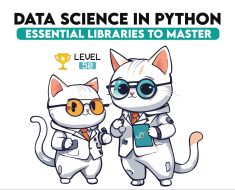
Banks and Google’s Generative AI Algorithm: Navigating the New Landscape in Digital Marketing
The integration of generative AI into Google’s search algorithm marks a pivotal shift in both the way search engines of the future will work, and digital marketing. These changes will particularly impact the banking sector. This white paper explores the opportunities and consequences of these technological advancements, and offers strategic insights for banks to help them adapt and thrive in this new era of AI. The beta version of Google’s new, AI-enabled algorithm can be tested by visiting Labs.Google.
The Era of Generative AI in Search
The future of advertising – reimagined.
Transformative Impact Across Industries
Google Labs, a central hub for beta testing Google’s experiments and AI-powered advancements, recently implemented a trial module for the search engine’s generative AI implementation. The closed beta was only available to select marketers and individuals. MHP/TeamSI received access due to our agency’s ranking as a Google Premier Partner, a status granted to only 2 percent of marketing companies in the United States.
Google’s beta program heavily focuses on Conversational AI, a type of artificial intelligence that simulates human conversation. The technology is powered by natural language processing (NLP), a field of AI that allows computers to communicate with human languages and process behaviors to generate AI communication and insights. Conversational AI technology includes chatbots, virtual assistants, text-to-speech software, speech-recognition software and virtual agents to power text or voice conversations.
Initially, Google tested using conversational AI on upwards of 90% of a search engine results page (SERP), leaving less room for users to locate organic search results before finding the information they need. Now, Google is scaling back conversational AI’s presence to just 50% of a SERP, a substantial amount by all accounts, but a promising opportunity for banks.
Generative AI is anticipated to revolutionize search behaviors and digital interactions in the banking sector and beyond. By harnessing conversational AI, Google is positioning their search engine to be better than the competition at learning and making sense of information in real time, giving users instantaneous answers and information based on specific searches. The sneak peek Google has provided into their current direction on generative AI search solidified our projections for the digital marketing landscape. Long story short: the revolution is already here.
Banking Sector Implications
What does this mean for the banking sector? It means that banks must realign their digital strategies to accommodate AI-driven search methodologies. The most prominent of these methodologies will undoubtedly be conversational AI.
So, let’s start with what we know. If your bank was ranking high for specific keywords and search terms in the pre-AI era, you’ll need to reevaluate your content after Google launches its generative AI update. With generative AI search, content and a digital presence that emphasizes your bank or financial institution’s expertise will be crucial for visibility.
The main goal of Generative AI search is to use natural conversation to get to know your customers, as individuals, consumers and “friends.” Yet, Generative AI is not always going to be correct or lead users to the most accurate information. It’s up to your bank to make sure the right information is included in your content, showcasing your organization’s reliability as an expert who is trustworthy enough for generative AI to drive online search traffic your way.
Why bite the hand that feeds (Google), when you can make sure it’s feeding a qualified lead their favorite meal?
Google’s Revised Personalized Ads Policy
Google makes the rules, advertisers have to play by them.
Policy Changes Effective February 2024
On February 28, 2024, Google will impose limitations on personalized advertising, particularly in sensitive categories such as finance. The policy bars advertisers from targeting certain demographics, including gender, age and ZIP code in the U.S. or Canada. Historically, these sensitive interest categories have been a crucial part of effective marketing strategies for banks and financial institutions. Adaptation to the personalized ads policy will look similar for most banks. However, the strategy behind the adaptation is what will truly set your bank apart from its competition. Targeting City will be allowed.
Enforcement and Compliance
Banks promoting offers related to credit, credit lending, banking products and services or financial planning to demographics in violation of the new policy will need to adapt their 2024 strategies, if they haven’t already. It’s expected that the policy change will take six weeks to reach full effect. Banks or advertisers in violation of the policy will be issued a warning regarding their ads. If the ad(s) are not adjusted to meet policy requirements, the warning will turn into a suspension of their Google Ads account.
Strategic Adaptation for Banking Institutions
Adapt and survive.
Doppio®
MHP/Team SI’s Doppio® is a cutting-edge, FLA-compliant data analytics platform revolutionizing banking and financial marketing. With access to over 200,000 data layers, it ensures that marketing messages precisely target the intended audience. Our expert analysts provide strategic recommendations to convert visitors into leads and customers, backed by a monthly track-record of success.
Specializing in targeted marketing, Doppio® can reach individuals seeking new or refinanced mortgages, high-end depositors undecided about banks, and those looking for new debit or credit cards. It’s also effective in B2B marketing, connecting with potential business partners and selecting customers based on their stock investments. Doppio® is a comprehensive marketing solution, enhancing campaign precision, efficiency, and effectiveness in the financial sector.
Search Engine Optimization (SEO)
Search engine optimization (SEO) is going to transition from traditional keyword-centric approaches to a more clear focus on subject-matter expertise. Content strategy for banks must now prioritize depth and quality of information.
In simple words, if your landing pages and campaigns ranked high in the past, you’ll need to reevaluate your strategies after Google officially launches generative AI search. Landing page rankings will no longer be reliant on the length of an article or quantity of keywords on a page. Instead, overall ranking will largely be based on the value and experience your business can provide to answer a user’s search query. Generative AI will read your content at lightning-fast speeds, separating the good from the bad, and determine whether or not your content should be shown to a user.
Sponsored ads will not be going anywhere, but organic links are going to look drastically different when searching hyper-specific search queries across Google, whether you’re on desktop or browsing through a mobile device. Currently, users are clicking on organic links 91% of the time. Generative AI will redesign search engine results pages (SERPs) to include AI answers to a user’s search query, drawing information from what Google’s AI platform considers trustworthy, informative web pages. This content will be in the form of drop-down menus and engaging, highly-visual content blocks.
Search Engine Marketing (SEM) and Pay-Per-Click (PPC)
With generative AI’s ever-evolving functionality in showing users highly-personalized content, adjustments to Search Engine Marketing (SEM) and Pay-Per-Click (PPC) strategies will be necessary to align with this new reality of broader search term relevance. As everyone hits a “reset button” on their SEO strategies, banks and financial institutions should make sure their budget is optimized for volatility in Google Ad expenditures, as keyword bidding is expected to increase.
Both SEM and PPC strategies are where conversational AI-based strategies must take root. Consider all angles, and all possible search queries and trains of thought when developing keyword bids. If you’re quick to the game and your content is both relevant and helpful, you’ll see greater SEO benefits and visibility.
The Evolution of Mobile Search
Mobile search is aging like a fine wine.
Increasing Dominance of Mobile Platforms
Mobile searches are becoming the primary method for financial inquiries, from opening a student checking account to utilizing your home’s equity and locking in a favorable interest rate with a HELOC loan. With roughly 67-71% of all search traffic for banking-related terms coming from mobile devices, banking and financial content doesn’t just need to be strategic – it needs to be presented in a mobile-friendly manner.
Our phones are extensions of our identities, acting as gateways into our personal and professional lives, and over 80% of mobile devices run with Google’s operating system. Generative AI is working to enhance user experiences on mobile devices, driving greater conversions, interest and time spent on page.
Once you factor in features such as voice search, accelerated mobile pages, rich content cards and snippets and trending and suggested topics, there’s no shortage of hyper-personalized banking content for generative AI to utilize. All in the palm of your hand.
Challenges for Local Banks
Smaller banks are seeing greater competition with larger, global institutions for visibility in mobile search results. Sponsored content helps smaller banks with the visibility of their services, but in order for content to rank higher in AI-based search results, banks need to include a strategic focus on local SEO and mobile-friendly content. It’s an essential piece of the puzzle.
Don’t count out the little guy. With the right content strategies and keyword bidding, smaller banks can make big impacts on users’ customer journeys.
Best Practices and Recommendations
Change the game in confidence.
Developing AI-Adaptive Content
Banks should be investing in developing content that aligns with AI-driven search trends. Content across all campaigns should be tailored to answer specific, conversational queries from consumers. Drive users to specific landing pages on your website that feature this content and include links to related pages on your website. The more informative and accessible the content is, the more conversational it feels – teaching search engines and AI that your content is the authority on a product or service.
Leveraging Data Analytics
Data analytics help banks understand customer behavior and preferences. Listening to the data and harnessing AI search trends allows you to adapt campaigns to better target qualified leads. By monitoring customer behaviors and the effectiveness of campaign strategies, you can guide interested parties to the service that best fits their needs. In short, data analytics are the guiding force in your content strategy and SEM strategies.
Embracing Digital Transformation
Technological advancements are moving faster than ever, but it’s important for banks to embrace digital transformation holistically. With fewer in-person banking interactions, customers won’t just be looking for your bank’s services – they’ll be judging your website accessibility, mobile optimization and AI integration. If you’re caught lacking in any of these areas, you could see fewer conversions.
Future-Proofing Digital Strategies
The future started yesterday. Continuous monitoring of AI advancements and policy changes is crucial to your continued success. There’s a fine line between rushing into AI integration and being late to the party. Keep your customers at the focal point of your strategies and consider how the use of AI will enhance their journey. Proactive adaptation ensures you remain competitive, but don’t forgo compliance in the process.
Takeaways
The integration of generative AI in search engines and changing ad policies represent a significant challenge and opportunity for the banking sector. In the era of keep up or get left behind, it’s imperative that banks refine their SEO and SEM strategies to align with the new, AI-driven reality. Consider a person wanting to move their money to your bank, a student looking to start a checking account, or someone looking to bank entirely online. How can you best create content that provides an answer for their searches?
Focus on creating authoritative, AI-compatible content. Created content must be mobile friendly and not overly academic. Taking these steps will not only enhance your digital presence, it will position your bank as a frontrunner in SEO and an expert through on-page conversational AI.
Generative AI promises limitless capabilities, but the prospects tend to get a little overwhelming. For comprehensive guidance and collaboration on your campaigns, visit mhpteamsi.com or contact the banking and financial marketing experts at MHP/Team SI.
As a Google Premier Partner, our agency can help you navigate these changes and optimize your bank’s digital strategies for the future. Bank Marketers can see how Google’s Generative AI will impact your business by signing up for the beta version at Labs.Google.
Prepared by MHP/Team SI
2023
![Progress and Prospects in 3D Generative AI: A Technical Overview including 3D human. (arXiv:2401.02620v1 [cs.AI]) Progress and Prospects in 3D Generative AI: A Technical Overview including 3D human. (arXiv:2401.02620v1 [cs.AI])](https://aigumbo.com/wp-content/uploads/2023/12/arxiv-logo-fb-235x190.png)




